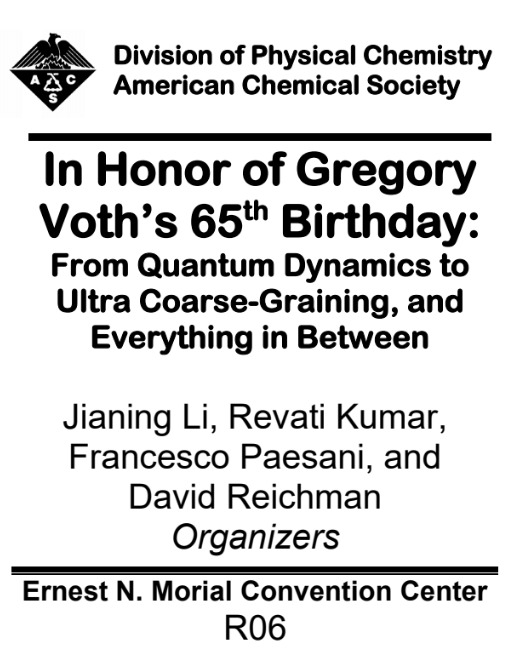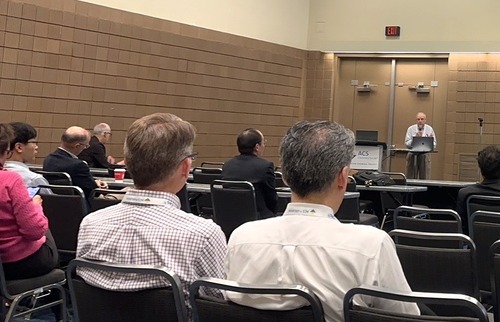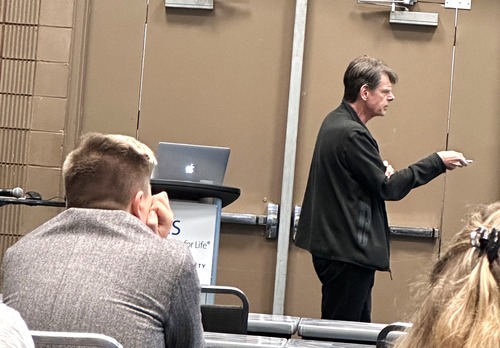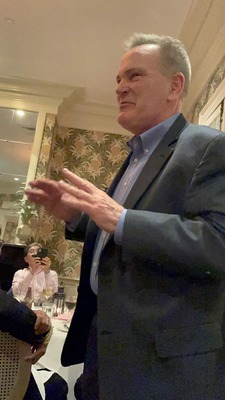Recently, Haig P. Papazian Distinguished Service Professor Gregory Voth was honored by the American Chemical Society with a four-day symposium that featured his work and accomplishments, as well as research inspired by his scientific work. From March 17th to the 21st, the symposium, titled “In Honor of Gregory Voth's 65th Birthday: From Quantum Dynamics to Ultra Coarse-Graining, and Everything in Between,” featured more than 60 speakers from around the country and was organized by Revati Kumar (LSU), Jianing Li (Purdue), Francesco Paesani (UCSD), and David R. Reichman (Columbia).
Organizers wrote that Voth was honored for his “seminal contributions to the development of theoretical and computational methodologies to further our understanding of important chemical and biophysical processes.”

The symposium brought together a combination of both theoretical and experimental researchers to present cutting-edge research over a wide range of topics influenced by Professor Voth’s work. Topics included recent developments in theoretical and computational chemistry (such as multiscale modeling, and ultra-coarse-graining), quantum dynamics, as well as problems relevant that span across chemistry, biochemistry, biophysics, and materials science (e.g., energy storage materials).


Speakers at the symposium included UChicago Chemistry faculty members Suri Vaikuntanathan and Benoit Roux (pictured above). As Professor Voth has been an active and important citizen of the scientific community, Roux says participants were only too happy to join the symposium in New Orleans and participate.
“Greg Voth, now at 65, is indisputably among the most prominent theoretical "chemists-biophysicists" of his generation,” said Roux. “His early work in the 90's was very much focused on quantum effects in statistical mechanics, especially with regard to proton dynamics. In the early 2000's, he reinvented himself by beginning to work on the concept of "coarse-graining", which is how to construct a valid model of a system with less details while remaining truthful to the correct physics. He still works on proton dynamics, but coarse-graining is now the major part of his work. It is very rare for a theoretical chemist to have an impact on one field. He had an impact on two completely different fields, which is exceptional.”

The Chemistry department would like to extend a happy birthday and best wishes to Professor Gregory Voth. As his admirers and colleagues who took part in the symposium illustrate, his work and accomplishments confirm a life well-lived in the field of chemistry, and one that is worth celebrating.